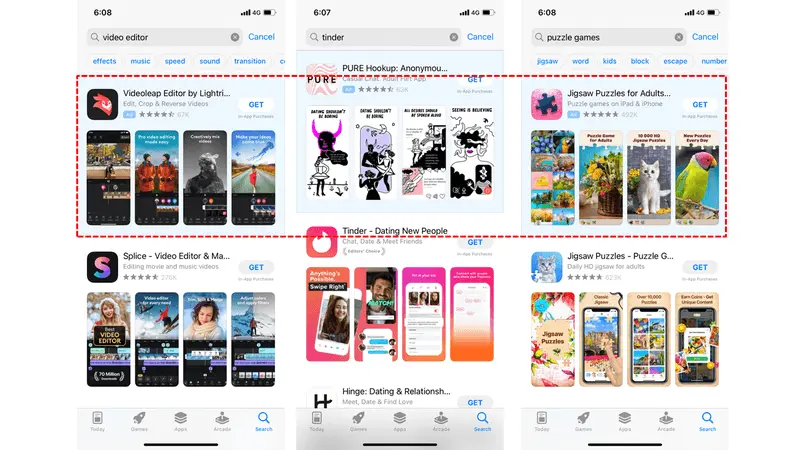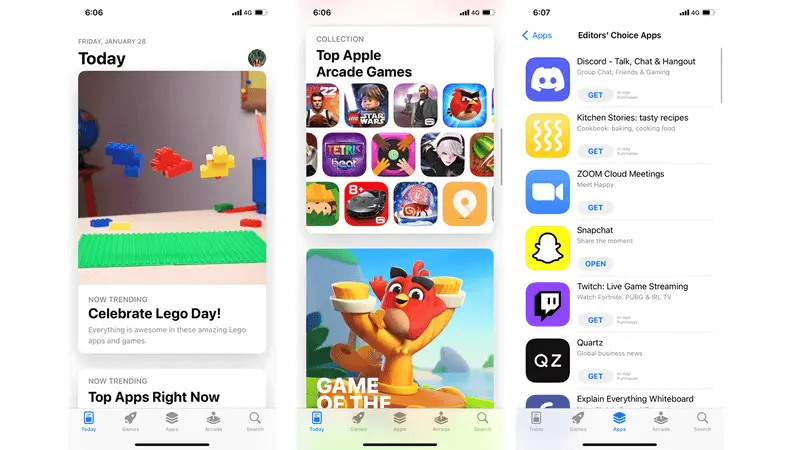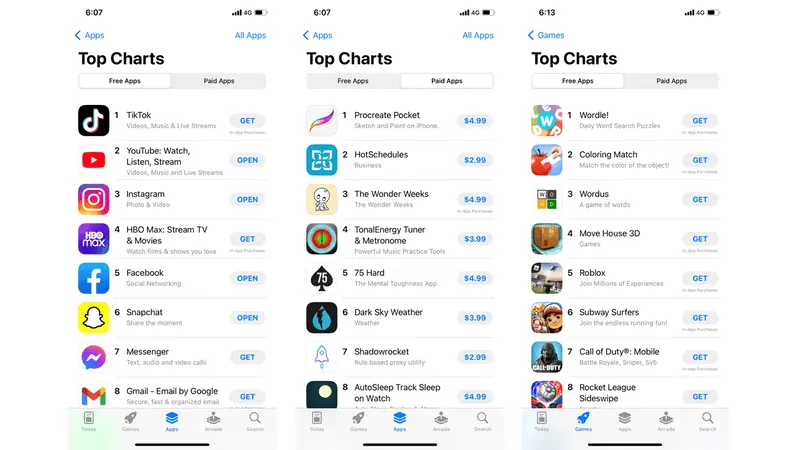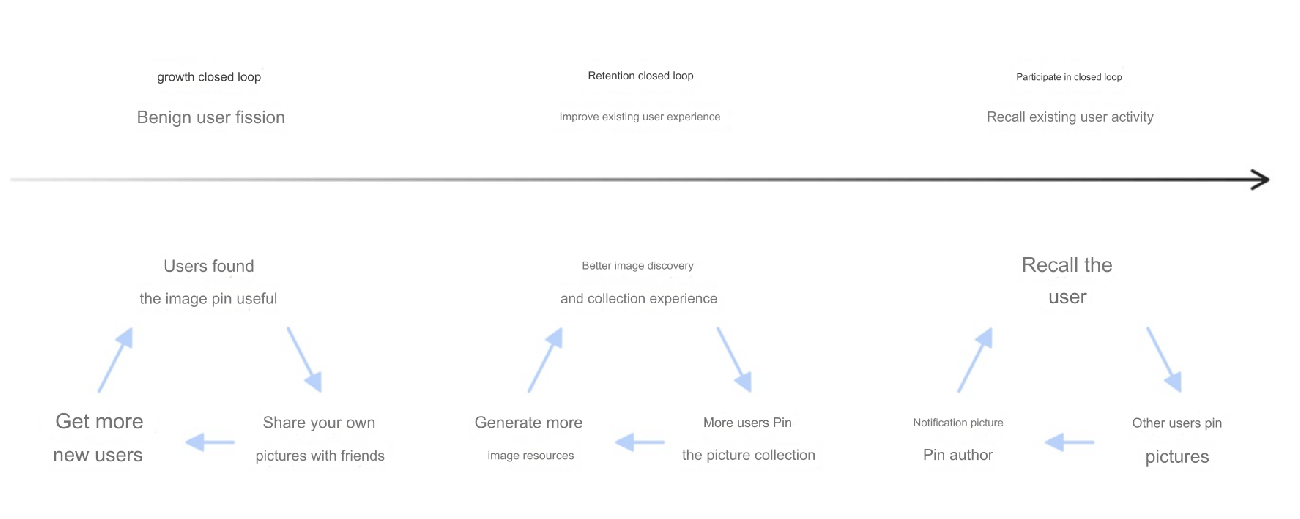Discover the top 10 reasons why your app's organic downloads might be declining and learn actionable strategies to address them. From keyword ranking drops to conversion rate issues, this article covers it all to help you sustain long-term growth on the App Store and Google Play.
Organic downloads are one of the most important KPIs for ASO specialists or marketers. If we notice a drop in organic downloads, it's natural to feel concerned. However, many factors can cause organic downloads to either increase or decrease. What matters most when facing a decline in organic downloads is identifying the underlying cause and finding a solution.
In this article, we'll focus on 10 possible reasons for a drop in organic downloads on the App Store and Google Play, and how we can analyze data and address the issue.
First, we need to understand that organic downloads depend mainly on two factors:
Traffic: The number of people who see your app (measured by impressions on iOS or product page visitors on Google Play).
Conversion rate: Once your app is exposed, the download volume depends on how many people who see it actually decide to download it.
So, a decrease in downloads could either be due to a drop in traffic or a reduction in conversion rate. Below, we’ll analyze specific reasons that could lead to a decrease in either traffic or conversion rate.
10 Major Reasons for the Decline in Organic Downloads and Solutions
Reason 1: The App Stops Running Ads
When organic downloads drop, the first thing to check is whether your marketing team has stopped or reduced ad spending during this period. Ads help increase brand search volume and app rankings, which boosts organic downloads. Stopping or reducing ad spending can impact search and browse (Explorer) traffic.
Solution:
If the decrease in organic downloads is largely due to reduced ad spending, you should report this to the entire user growth team and aim to strike a balance between ad spending and organic growth.
Reason 2: Increased Spending on Apple Search Ads or Google Universal Campaigns
While reducing ad spend can impact organic growth, increasing spending on certain channels can also cause a drop in organic downloads. The most common cases involve Apple Search Ads and Google Play ads.
Apple Search Ads target keywords. Once you start running ads, they may eat into your organic downloads. For example, if you were ranking first for your brand keyword, your app was downloaded after a search. But when you or your competitors start spending heavily on Apple Search Ads, ads will appear in the first position, and your organic downloads could be “stolen” by them.
Google Play also has similar ads, which appear on app or game recommendation pages and in search results. Sometimes, the top three results in Google Play searches are all ads.

Solution:
If increasing ad spend reduces organic downloads, analyze the performance of your brand keywords in Apple Ads, or review campaigns on Google Ads to see which campaign is cannibalizing your organic traffic. Once identified, adjust your ad strategy accordingly.
Reason 3: Decreased Visibility of Target Keywords
Two main reasons can lead to a drop in the visibility of your target keywords:
Decreased search volume: Due to market trends, brand promotions, or seasonal changes, keyword search volumes are always dynamic. For example, educational apps may see a surge in back-to-school season, followed by a drop.
Ranking decline: Due to competition, Apple algorithm updates, or ineffective ASO, you may lose important keyword rankings. When keyword rankings drop or disappear, your app's visibility (impressions) will decrease, leading to a drop in organic downloads.
Solution:
You need to adjust your keyword strategy in response to changes in the market or other factors. Monitor keyword rankings for both you and your competitors to ensure you don't miss valuable traffic. If your competitor has added your popular keyword and improved its ranking, consider increasing the weight of that keyword in your metadata to maintain a competitive edge.
Check for any algorithm updates from the App Store or Google Play. If rankings are dropping due to algorithm changes, adapting quickly can help mitigate losses.
Reason 4: Decline in Brand Search Volume
Sometimes, due to a decline in brand awareness in the market or app store, your app loses search traffic related to its brand.
Solution:
If your app is losing brand-driven search volume, monitor changes in brand visibility and alert your marketing and branding teams to address any decrease in brand awareness. You can then implement various marketing strategies (e.g., boosting social media ads or offline campaigns) to raise brand awareness across different platforms.
Reason 5: New Competitors
Every day, thousands of new apps are launched on the App Store and Google Play. Your competitors are constantly increasing, and you may have been overtaken without realizing it. Users might switch to a competitor if they feel it provides better value.
Furthermore, competition isn't limited to similar apps. Once a new, "trendy" app or game catches users' attention, they may focus on it, reducing interest in other apps.
Solution:
Continuously improve your app's quality, provide unique value to users, and enhance your ASO strategy to maintain a competitive edge.
Reason 6: The App's Recommendations Have Ended
In addition to search traffic, the decline in browse/explore traffic can also affect organic downloads. One reason for a decrease in browse traffic is that your app’s recommendation may have ended.
If your app was recently featured or selected for "Editor's Choice," it would have seen significant organic download growth. However, being featured is temporary, and once the recommendation ends, your organic downloads may revert to previous levels.

Solution:
In this case, don’t panic—simply be grateful that your app was recommended! You can further leverage this by reaching out to bloggers and media outlets to get your app reviewed, which could bring more organic downloads.
Reason 7: Decline in Category Ranking
The higher your app ranks in its category, the more visible it will be on both the overall and category-specific charts. If your app drops from the top 10, this can result in a significant decline in visibility.

Solution:
If your free or top-selling chart ranking declines, consider boosting your ad spending to acquire more new users and improve your ranking. Alternatively, if you can’t break into the top 10 in a competitive category, consider switching to a related but less competitive category.
Reason 8: Decreased Conversion Rate from App Assets (Icons, Screenshots, Videos, etc.)
Visual elements play a crucial role in conversion rates in app stores. If you recently updated your app's icon, screenshots, or videos, monitor whether the conversion rate has dropped. A decrease in conversion rate will lead to a drop in both organic and paid installs.
Solution:
If your drop in organic downloads correlates with updates to your app assets, collaborate with your branding or design team to optimize your creatives. You can also run A/B tests to identify the best performing assets.
Reason 9: Decrease in Ratings and Reviews
Ratings and reviews significantly impact conversion rates. If the overall rating drops below 4 stars or if there are many negative reviews at the top, users may hesitate to download your app.
Solution:
Monitor your app’s ratings and reviews on the App Store and Google Play. If there are sudden changes, investigate whether there’s negative press surrounding your brand or if there are any significant bugs in the app. Address the issues promptly and respond to malicious reviews.
Reason 10: Errors in Store Backend Data
A final reason for a decline in organic installs might be errors in the data provided by Google Play Console or App Store Connect. This issue has occurred multiple times on both platforms, especially with App Store Connect.
Solution:
If you suspect errors in the data provided by the Google Play Console or App Store Connect, cross-check the data using third-party analytics platforms like Appsflyer. You can also check ASO-related communities or forums to see if others are experiencing similar issues.
Conclusion
There are many reasons for a drop in organic installs. By systematically checking this list, you can pinpoint the root cause and take targeted action. These same factors that cause a decrease in organic installs can also be used to boost them. By identifying the cause and addressing it, you can achieve long-term growth in organic downloads. 🌱📈







